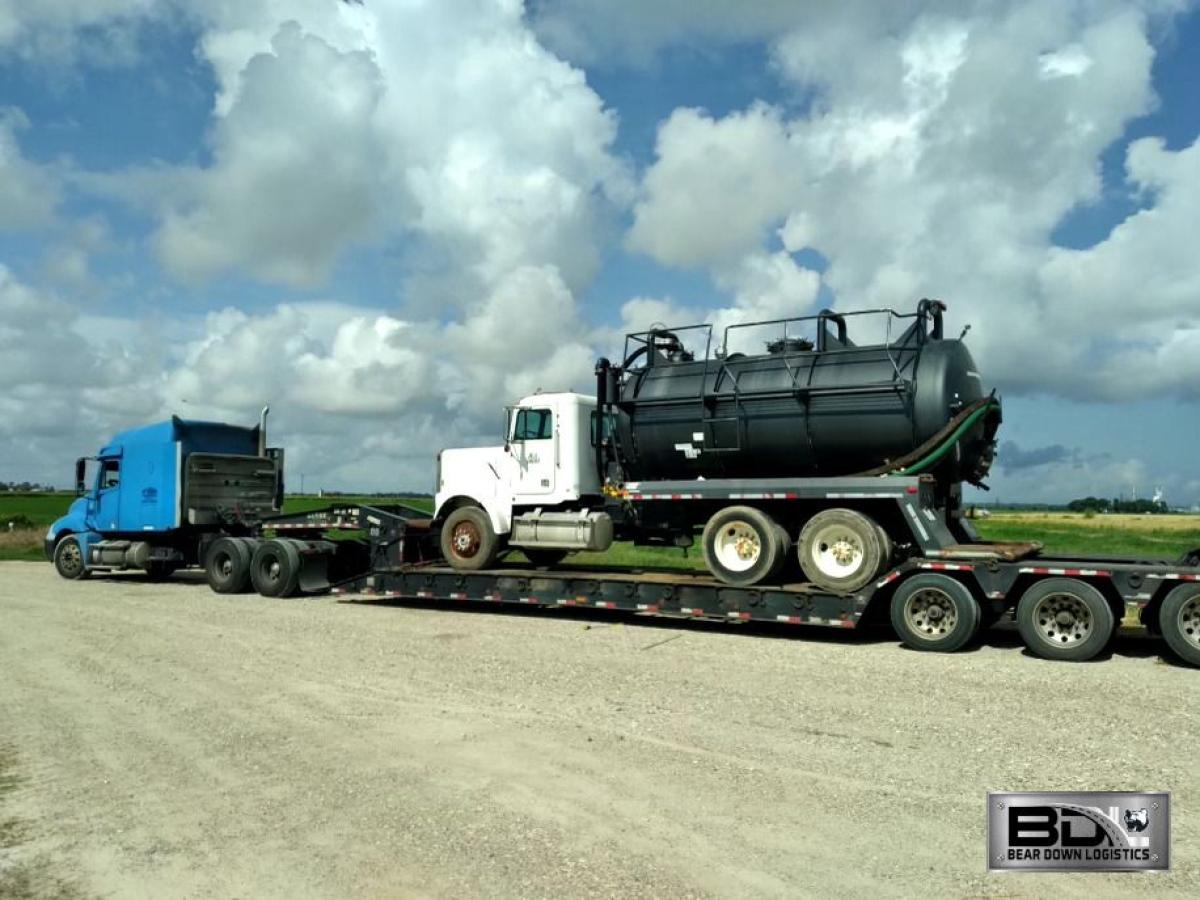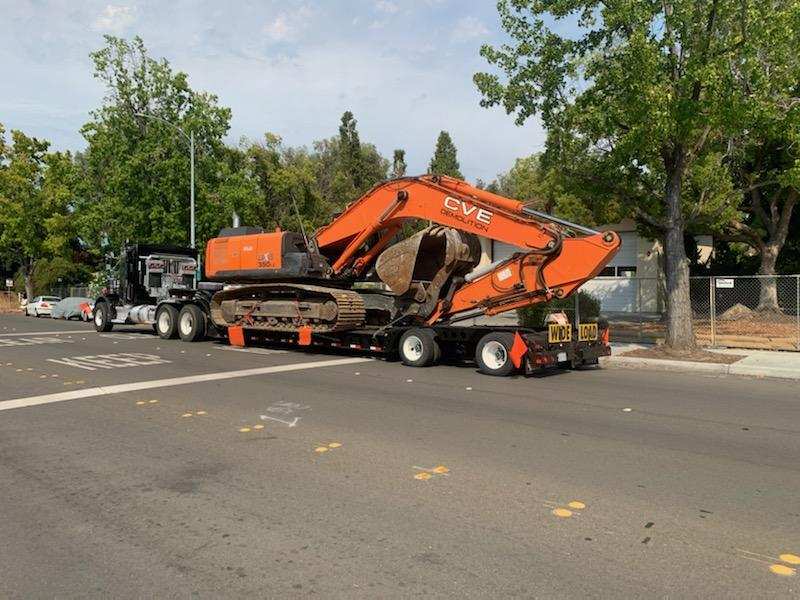What Makes Heavy Hauling Colorado Different From Others
Transporting oversized and overweight freight is never a simple task. Every state comes with its own landscape, infrastructure, and regulatory challenges. When it comes to heavy hauling Colorado, these differences become particularly distinct. With mountainous terrain, varying weather conditions, and strict permitting rules, Colorado sets itself apart from many other regions. Companies like Bear Down Logistic have built specialized strategies to navigate these challenges effectively, ensuring safe and timely delivery across the state and beyond.
The Geographic Factor in Colorado Heavy Hauling
One of the defining characteristics of heavy hauling in Colorado is the geography. Unlike flat or coastal states, Colorado’s terrain includes steep mountain passes, winding highways, and sudden elevation changes. These geographical factors directly influence how heavy equipment and oversized loads are transported. Trucking through the Rockies demands not just powerful equipment but also highly skilled drivers who can maneuver large loads through sharp turns and narrow roads. In addition to the mountain ranges, rural roads in Colorado often have limited access points, making route planning a critical part of the hauling process. Unlike states with dense highway networks, Colorado requires more precise navigation to ensure loads can move without unnecessary delays.

The Role of Weather in Hauling Operations
Colorado’s weather is another variable that makes heavy hauling distinct. Seasonal snowstorms, sudden rain showers, and icy conditions can significantly delay transportation. In contrast, states with milder climates allow for year-round hauling with fewer interruptions. In Colorado, haulers must plan shipments with careful consideration of the weather forecast, especially when moving through mountain passes. For instance, during winter, heavy hauling companies must equip their trucks with chains and have contingency plans in place for temporary road closures. This level of preparation is essential to maintain safety and compliance while meeting client timelines.
Regulatory Environment and Permitting Rules
Colorado enforces strict guidelines for transporting oversized and overweight loads. While every state requires permits, Colorado’s Department of Transportation (CDOT) has specific regulations tailored to the unique demands of its roads and infrastructure. These rules cover everything from maximum axle weights to load dimensions and escort requirements.
Securing permits in Colorado requires detailed information about the load and route, which makes the process more complex than in some neighboring states. For companies like Bear Down Logistic, this means building strong expertise in permit acquisition and regulatory compliance to avoid costly delays.
Equipment and Technology Used in Colorado Heavy Hauling
The equipment required for heavy hauling in Colorado is often more specialized than in states with flat terrain. Trucks must be powerful enough to handle steep grades while maintaining control of oversized loads. Trailers also need to be equipped with features such as hydraulic lifts and multi-axle configurations to evenly distribute weight. Modern technology also plays a crucial role. GPS tracking, route optimization software, and real-time monitoring systems allow haulers to adjust to changing conditions quickly. These tools are particularly valuable in Colorado, where unpredictable weather and challenging roads demand flexible logistics solutions.
Safety Considerations in Colorado Hauling
Safety is always a top priority in heavy hauling, but Colorado adds extra layers of concern. Drivers must be trained not only in standard hauling procedures but also in handling difficult terrain and variable weather. This includes maintaining lower speeds on steep declines, understanding how altitude impacts vehicle performance, and preparing for sudden stops on winding roads. To ensure the highest safety standards, companies emphasize comprehensive training programs and strict maintenance schedules. This reduces the risks associated with transporting heavy machinery, industrial equipment, or modular structures through the state.
Economic Importance of Heavy Hauling in Colorado
Heavy hauling contributes significantly to Colorado’s economy. Industries such as mining, energy, agriculture, and construction rely on the transportation of oversized equipment. Without efficient hauling services, projects in these sectors would face delays and higher costs.
Colorado’s economic landscape makes heavy hauling services vital not just for local operations but also for interstate commerce. The state serves as a critical link between the Midwest and Western states, which increases the demand for reliable heavy hauling solutions.
Distinctive Challenges Compared to Other States
When comparing Colorado to states such as Texas, Florida, or Nevada, the differences in heavy hauling become more apparent. Flat states may prioritize long-haul distances, while coastal states may focus on port-to-inland transport. Colorado, however, emphasizes navigating difficult terrain, managing altitude, and preparing for volatile weather.
A few points highlight why Colorado stands apart:
- Mountain passes and steep grades require advanced driving expertise.
- Weather unpredictability necessitates careful scheduling.
- Strict permitting regulations demand thorough planning.
- Limited rural infrastructure increases the importance of route optimization
These challenges underline why companies that specialize in Colorado hauling must develop tailored strategies.
The Value of Local Expertise
Working with a company experienced in Colorado’s unique environment provides clear advantages. Bear Down Logistic, for example, brings not only the equipment but also the local knowledge required to ensure smooth transportation. Their expertise in permit handling, weather planning, and route design helps minimize risks and maximize efficiency. Local expertise also builds trust with clients who depend on reliable, safe, and timely delivery of their equipment. In industries where delays can cost millions, having a specialized partner makes a substantial difference.

Environmental Considerations in Colorado Hauling
Colorado is known for its commitment to environmental sustainability, and this extends to the transportation sector. Heavy hauling companies must account for fuel efficiency, emissions standards, and road preservation efforts. Because large loads place significant stress on infrastructure, Colorado enforces rules designed to protect roads and minimize environmental impact. This contrasts with some other states where environmental regulations are less stringent. Haulers in Colorado must balance operational efficiency with sustainability, investing in equipment and practices that reduce their environmental footprint.
Conclusion
Heavy hauling in Colorado is distinct from other states due to its mountainous geography, volatile weather, strict regulatory environment, and emphasis on safety. These factors make it more complex but also highlight the need for skilled companies like Bear Down Logistic that can provide specialized solutions. From navigating mountain passes to securing permits, successful heavy hauling in Colorado depends on expertise, preparation, and adaptability.
FAQs
Why is heavy hauling more difficult in Colorado than in other states?
Heavy hauling in Colorado is more challenging due to mountainous terrain, unpredictable weather, and strict regulatory requirements that demand advanced planning.
What industries in Colorado rely most on heavy hauling?
Industries such as mining, construction, energy, and agriculture depend heavily on oversized equipment transport, making hauling services essential.
How do companies prepare for weather-related delays in Colorado?
Companies prepare by monitoring forecasts, equipping trucks with chains, and creating contingency routes to handle road closures or storms.
Do Colorado regulations require escorts for oversized loads?
Yes, depending on the load dimensions and route, Colorado often mandates pilot cars or escorts to ensure safety during transport.
What advantages does local expertise provide in Colorado hauling?
Local expertise ensures compliance with state regulations, familiarity with difficult routes, and strategies to handle weather and terrain challenges effectively.